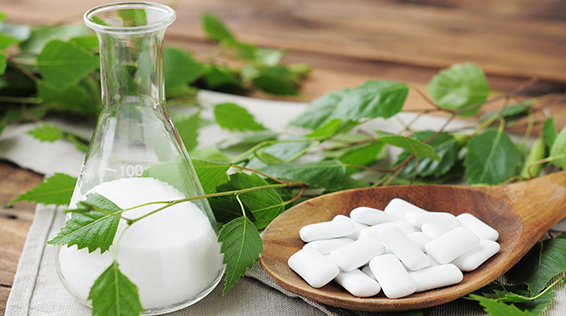CHEWING GUM IS NOT A REPLACEMENT FOR TEETH BRUSHING
Chewing gums have been around for 150 years as various forms of adhesive rubber compounds. The first legally protected chewing gum dates from 1869. Some type of chewing gum was known much earlier, 9000 years ago. It is believed that Scandinavians often chewed birch resin, as well as Indians who are believed to have chewed the bark of the Salvadora Persica tree as early as 1000 BC, which was later transferred to the Arabian Peninsula and Africa. He would cut off part of the twig and chew it until its bristles parted, reminiscent of today’s toothbrushes. Salvadora Persica or miswak then served as a toothbrush, is also due to its fluoride content a precursor to today’s fluoride pastes. Today, there are debates about the benefits of chewing gum for teeth.
Can chewing gum be an alternative to brushing your teeth?
First of all, we must emphasize that there is a large range of chewing gums on the market that differ greatly in their composition and thus have a "different effect" and effect on the teeth.
Is the so-called "Tooth chewing gum" really better than other chewing gum?
Yes. Dental chewing gums are sugar-free and sweetened with substitutes that do not dissolve bacteria, thus not causing the formation of acids from dental plaque that demineralize the tooth substance and create caries.
Do chewing gums clean your teeth?
No. Chewing gum does not remove plaque and dental plaque. Chewing gum cannot replace regular washing and maintaining oral hygiene. For optimal oral health, it is recommended to brush with an electric or mechanical brush at least twice a day in combination with fluoride paste, and for at least 2 minutes.
Do dental chewing gums have any positive effects, even though they cannot remove dental plaque?
Yes. Dental chewing gum stimulates increased salivation and is only recommended when we are on the move and unable to brush our teeth using a toothbrush and toothpaste. Chewing dental gum, ie sugar-free chewing gum is also used as part of caries prophylaxis. Their use is recommended after meals because then we have increased saliva secretion, thus better sapping of food residues, neutralization of acids, and remineralization of dental tissue with minerals from saliva.
What is xylitol and is it true that chewing gum with xylitol has a particularly positive effect on teeth?
Xylitol is a substance that is almost as sweet as regular refined sugar but does not have a destructive effect on tooth tissue. Bacteria in the mouth and plaque cannot break down xylitol into acids that cause demineralization of tooth tissue. Numerous studies have proven the positive effect of xylitol on the reduction of the number of cariogenic bacteria in the mouth as well as their adhesion to the tooth surface. Some chewing gums promise a whitening effect after their consumption, which is completely unfounded and impossible to achieve without certain abrasive substances that chewing gums do not contain. However, chewing gum can help prevent the build-up of plaque that stains teeth, e.g. from cigarettes, coffee, tea, forest fruits, and similar foods.


